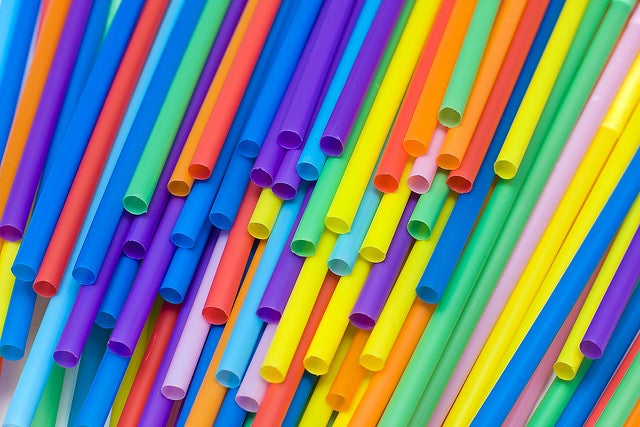Plastic straws are disappearing from Wetherspoons as environmental campaign gathers pace
Straws are the new focus of environmentalist efforts to reduce the amount of plastic that makes its way to landfill and into the oceans

JD Wetherspoon has stopped automatically putting plastic straws in drinks, becoming the latest pub chain to put an end to the “wasteful” practice.
The pub chain says it will only use biodegradable paper straws from January 2018 in a move it claims will stop 70 million plastic straws entering landfill or making their way into the world’s oceans each year.
The announcement comes as a wider campaign known as Refuse the Straw gathers pace. It aims to stop pub chains and restaurants handing out the plastic straws which are thought to take up to 500 years to decompose.
Wetherspoon has joined All Bar One as well as smaller chains Oakman Inns and the Liberation Group, which stopped handing out plastic straws earlier this year.
Bars and restaurants have recently come under presure from Refuse the Straw, which started in the US and is backed by designer Vivienne Westwood. It hopes that a simple change by pubs and restaurants will shift consumer behaviour by ending the expectation that a straw will be provided with every drink.
A similar shift came in the UK after a 5p charge was introduced for plastic bags, resulting in an 85 per cent reduction in the number people use.
The Plastic Pollution Coalition which backs the campaign says more than 500 million single-use plastic straws are used each day in the US alone.
What difference will it make?
Much of the concern around throwaway plastic centres on the impact it has on the world’s oceans. This week, scientists discovered that plastic is now even polluting remote floes in the Arctic Ocean. Large pieces of plastics such as polypropylene and polystyrene break down into smaller pieces which are then consumed by marine wildlife and move up the food chain. A video that went viral earlier this year feature the grisly discovery that a sick beached whale had 30 plastic bags in its stomach.
Plastic Straws
An environmental hazard
500 million - plastic straws used every day in the US
70 million - plastic straws that will be saved by Wetherspoon's move
500 years - how long it takes for each straw to biodegrade
85 per cent - drop in the use of plastic bags after 5p charge introduced
30 - number of plastic bags found in the stomach of a whale in Norway
Plastic pollution has consistently increased over the last 20 years and environmentalists say that plastic straws should be on our hit list, along with carrier bags, single-use plastic bottles and microbeads from cosmetics as items to ban. The Government announced a ban on the use of plastic microbeads in wash-off health and beauty products earlier this year and Scottish MPs announced a plastic bottle deposit scheme earlier this month but straws have so far evaded legislators’ crosshairs.
That should change, according to Mark Hall of Busineswaste.co.uk who thinks consumers should pay a tax if they want a straw. Ultimately, plastic straws are unnecessary, he says. “Why on earth do you need a straw in your gin and tonic anyway?” he told the BBC. “The industry can do something about it, but so can we as consumers - it's easy to say 'no straw please'.”
Business news: In pictures
Show all 13The Plastic Pollution Coalition is so far hoping that social pressure and moves like the one made by Wetherspoon will be enough to change habits and reduce the environmental impact.
It urges people to reach out to local eateries and ask them to only serve plastic straws on request or only serve non-plastic options like paper, glass or stainless steel.
Support for the movement appears to be attracting increasing attention. A Facebook post by Ms Westwood warning that “the straw in your cocktail or coffee will be on this planet forever”, has been shared more than 300,000 times.
Subscribe to Independent Premium to bookmark this article
Want to bookmark your favourite articles and stories to read or reference later? Start your Independent Premium subscription today.

Join our commenting forum
Join thought-provoking conversations, follow other Independent readers and see their replies